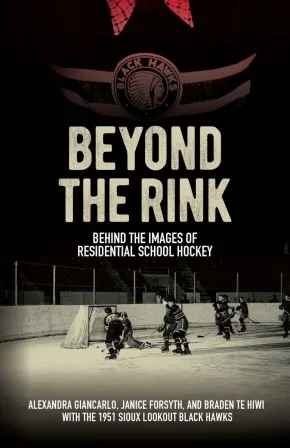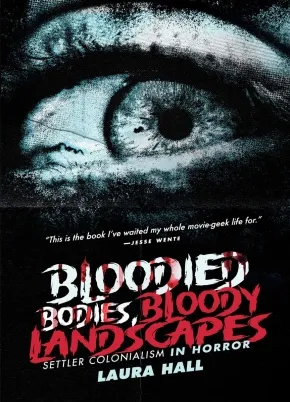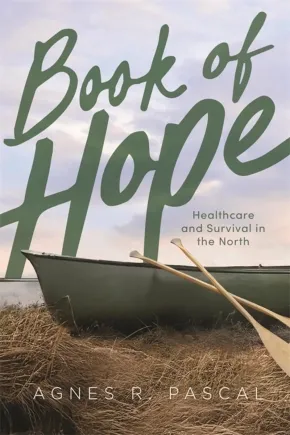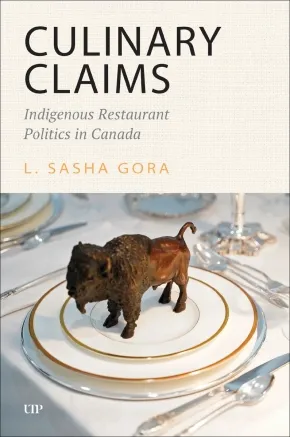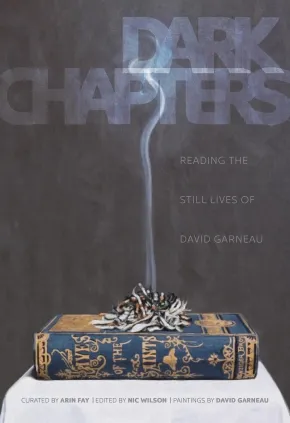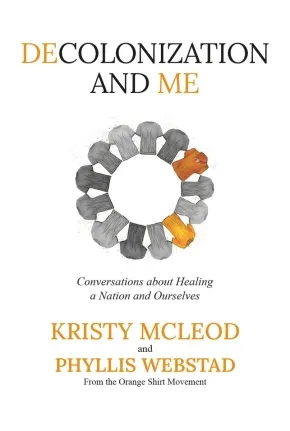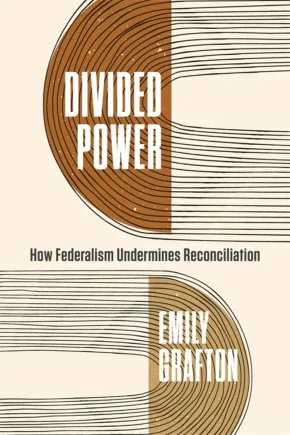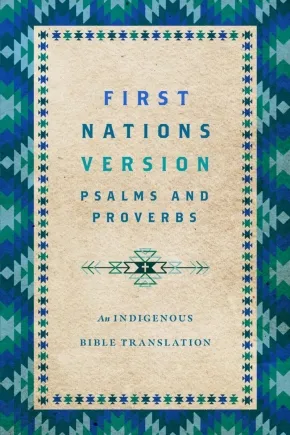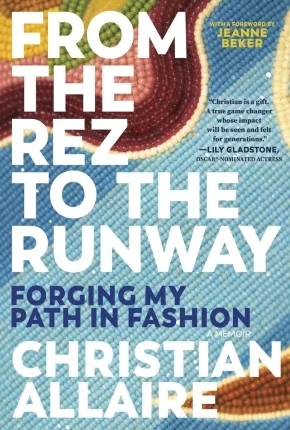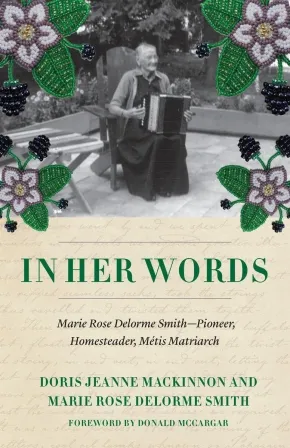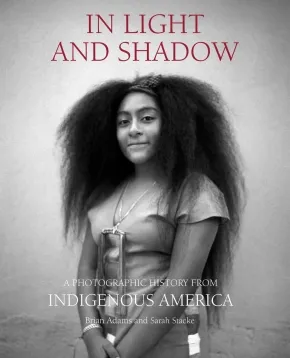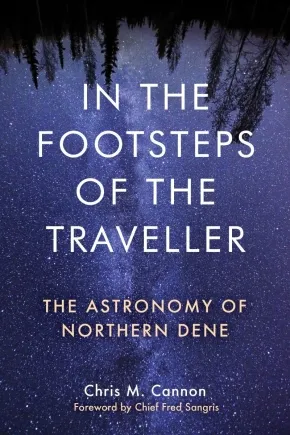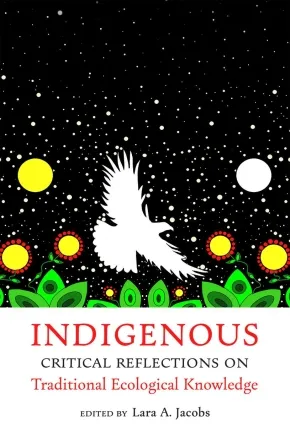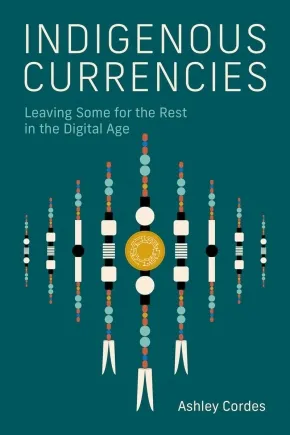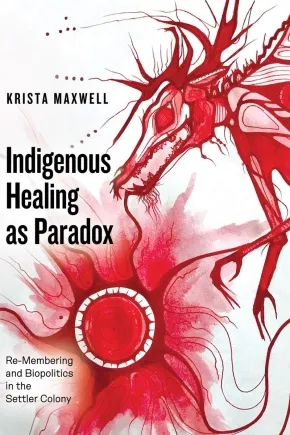
Social and Cultural Studies
16
-
30
of
567 Results;
Sort By
Go To
of 38
Beyond the Rink: Behind the Images of Residential School Hockey
$24.95
Format:
Paperback
Text Content Territories:
Indigenous Canadian;
Reading Level: N/A
ISBN / Barcode: 9781772841060
Synopsis:
Synopsis:
Teammates, champions, Survivors
In 1951, after winning the Thunder Bay district championship, the Sioux Lookout Black Hawks hockey team from Pelican Lake Indian Residential School embarked on a whirlwind promotional tour through Ottawa and Toronto. They were accompanied by a professional photographer from the National Film Board who documented the experience. The tour was intended to demonstrate the success of the residential school system and introduce the Black Hawks to "civilizing" activities and the "benefits" of assimilating into Canadian society. For some of the boys, it was the beginning of a lifelong love of hockey; for others, it was an escape from the brutal living conditions and abuse at the residential school.
In Beyond the Rink, Alexandra Giancarlo, Janice Forsyth, and Braden Te Hiwi collaborate with three surviving team members-Kelly Bull, Chris Cromarty, and David Wesley-to share the complex legacy behind the 1951 tour photos. This book reveals the complicated role of sports in residential school histories, commemorating the team's stellar hockey record and athletic prowess while exposing important truths about "Canada's Game" and how it shaped ideas about the nation. By considering their past, these Survivors imagine a better way forward not just for themselves, their families, and their communities, but for Canada as a whole.
Reviews
"These three survivors-Kelly, David, and Chris-inspire us not only for what they have done for their communities in the aftermath of the residential school system but also for how crucial hockey and sports are in bringing Indigenous communities together, like we see in the Little NHL Tournament. Our history and the lessons we've learned are vital, and Beyond the Rink does an excellent job of highlighting this." — Ted Nolan, former NHL Player & Coach, Olympic Coach, and author of Life in Two Worlds: A Coach's Journey from the Reserve to the NHL and Back
"On its face, Beyond the Rink is a compelling story of a residential school hockey team from northern Ontario touring Ottawa and Toronto in the 1950s. But it is much more than that: with a National Film Board photographer accompanying them every step of the way, the players are props in a public relations exercise meant to obscure the true conditions in residential schools.
This is an unflinching and nuanced look behind the PR veil, a story of loss, triumph, perseverance, tragedy, and memory. It is also a detailed account of the machinery of residential schools and the trauma they inflicted. And it is a revealing look at the power of photographs, which can be used to both illuminate and mislead.
At its heart, Beyond the Rink is the story of twelve Indigenous hockey players, who, like their white counterparts, loved the game for the thrill of competition, but also as an escape from the relentless control and exploitation they faced on a daily basis, even if they were being exploited while doing it. This is the story of twelve boys, told through the lens of three of them, trapped in a world they barely understood, a world that was not the least bit interested in understanding them, and in many ways still isn't." — Gord Miller
"The authors have spent decades working with the Survivors whose stories they share and centre in this book. Beyond the Rink, Behind the Image does not simply tell the story of a hockey team; it demonstrates how sport within the context of residential schools was a tool of colonization." — Karen Froman
"It is difficult to overstate the significance of this book. The scholarship is sound as well as original in context and content, and Survivor testimony is respected and communicated in a theoretically sophisticated way." — Travis Hay
Additional Information
184 pages | 6.00" x 8.50" | 36 b&w illustrations, bibliography | Paperback
Bloodied Bodies, Bloody Landscapes: Settler Colonialism in Horror
$32.95
Format:
Paperback
Text Content Territories:
Indigenous;
Grade Levels: University/College;
ISBN / Barcode: 9781779400802
Synopsis:
Synopsis:
Turning a lens on the dark legacy of colonialism in horror film, from Scream to Halloween and beyond.
Horror films, more than any other genre, offer a chilling glimpse—like peering through a creaky attic door—into the brutality of settler colonial violence. While Indigenous peoples continue to struggle against colonization, white settler narratives consistently position them as a threat, depicting the Indigenous Other as an ever-present menace, lurking on the fringes of “civilized” society. Indigenous inclusion or exclusion in horror films tells a larger story about myths, fears, and anxieties that have endured for centuries.
Bloodied Bodies, Bloody Landscapes traces connections between Indigenous representations, gender, and sexuality within iconic horror classics like The Texas Chainsaw Massacre and Friday the 13th. The savage killer, the romantic and doomed Indian, the feral “mad woman”—no trope or archetype escapes the shadowy influence of settler colonialism. In the end, horror both disrupts and uncovers colonial violence—only to bury its victims once more.
Reviews
“This is the book I’ve waited my whole movie-geek life for.”— Jesse Wente
“Bloody Bodies, Bloody Landscapes is a must read for anyone consuming horror media. Laura Hall masterfully dissects the ways in which settler-colonialism is at the core of sexism, racism, sanism, and white supremacy, and how we see those systems of oppression at work in historical and contemporary horror.”— Jessica Johns
“Expertly foregrounding the most overlooked horror in this film genre—settler colonialism—Bloodies Bodies, Bloody Landscapes is deadly.”— Christine Sy
"Bloodied Bodies, Bloody Landscapes is brilliant scholarship that pinpoints the ugly truth about the treatment of Indigenous people in horror cinema. But Hall is doing much more than examining tropes of mysticism, savagery, and settler colonialism-as savior in horror; she is directing our attention to the recuperative power of certain portrayals, thereby reminding us that an anticolonial lens can produce whole and full human stories—even scary ones.”— Robin R. Means Coleman, author of The Black Guy Dies First: Black Horror from Fodder to Oscar
Educator Information
Table of Contents
Introduction
Chapter 1. They’re Here! Settler Colonialism and the Horror Film
Chapter 2. The Bloodsucking Brady Bunch: Gender, the Family and Settler Colonial Horrors
Chapter 3. We All go A Little Mad Sometimes!
Chapter 4. Cowboys in the Antarctic: Settler Colonialism and Nature in Horror
Chapter 5. Jason Voorhees Does a Land Acknowledgement: Indigeneity Lurking in the Woods
Conclusion
Sources
Additional Information
288 pages | 6.02" x 9.01" | Paperback
Book of Hope: Healthcare and Survival in the North
$29.00
Format:
Paperback
Text Content Territories:
Indigenous Canadian;
ISBN / Barcode: 9781773637365
Synopsis:
Synopsis:
Firsthand narratives from Northern and Indigenous cancer survivors and caregivers offer compassionate advice and insightful analysis about healthcare in rural northern communities.
A cancer diagnosis can be life changing for anyone, bringing new physical and emotional realities, changed relationships, and often frustration when dealing with healthcare systems. But living north of sixty means dealing with a higher level of healthcare inequity. Agnes Pascal compiles firsthand narratives from Northern and Indigenous cancer survivors and caregivers that illuminate the unique challenges of healthcare accessibility in the North.
In this rare volume, more than thirty voices offer compassionate advice and insightful analysis born from experience. With courage and dignity, they discuss fear, grief, and death; the logistics of medical travel for treatment; Indigenous and Western medicine; structural determinants of health, including industrial pollution and environmental racism; and the impacts of residential schools and “Indian hospitals” on northern communities. In these pages people share that hope comes from building healing communities.
This book is for people with cancer and their caregivers; health policy makers and advocates; scholars and practitioners of healthcare, Indigenous governance, or environmental racism; and anyone interested grassroots, community-based peer support.
Reviews
“This book is a chorus of bravery, one every health practitioner should read so they can understand that as devastating as a cancer diagnosis is to the patient, it also affects the patient’s family, extended family and community. Thankfully, there is hope once diagnosed and the stories from these survivors is a testimony to the power of compassion, technology, teamwork, follow up and after care. I am in awe of the humility, courage, insight and gratitude in every story here. Mahsi cho.”- Richard Van Camp, author of Gather: Richard Van Camp on the Joy of Storytelling
“Prioritizing the voices of northern and Indigenous cancer patients, especially those from small communities, is critical for ensuring positive change within the Northwest Territories healthcare system. The inner strength of patients and the insights they share, are a gift to us all. ”- Stephanie Irlbacher-Fox, scientific director at Hotıì ts’eeda
Additional Information
192 pages | 6.00" x 9.00" | 30 Contributor Photos | Paperback
Culinary Claims: Indigenous Restaurant Politics in Canada
$34.95
Format:
Paperback
Text Content Territories:
Indigenous Canadian;
Reading Level: N/A
ISBN / Barcode: 9781487544751
Synopsis:
Synopsis:
Culinary Claims explores the complex relationships between wild plants and introduced animals, Indigenous foodways, and Canadian regulations. Blending food studies with environmental history, the book examines how cuisines reflect social and political issues related to cultural representation, restaurants, and food sovereignty.
L. Sasha Gora chronicles the rise of Indigenous restaurants and their influence on Canadian food culture, engaging with questions about how shifts in appetite reflect broader shifts in imaginations of local environments and identities. Drawing on a diverse range of sources – from recipes and menus to artworks and television shows – the book discusses both historical and contemporary representations of Indigenous foodways and how they are changing amid the relocalization of food systems.
Culinary Claims tells a new story of settler colonialism and Indigenous resistance, emphasizing the critical role that restaurants play in Canada’s cultural landscape. It investigates how food shapes our understanding of place and the politics that underpin this relationship. Ultimately, the book asks, What insights can historians gain from restaurants – and their legacies – as reflections of Indigenous and settler negotiations over cultural claims to land?
Educator Information
Subjects: Business; History / Canadian History; History / Business & Economic History; Food Studies / Food in History; Indigenous Studies / Indigenous History
Table of Contents
List of Illustrations
Preface
Introduction: You Are Welcome
1. Agricultural Flagpoles
2. From Trains to Tundra
3. Restaurants and Representation
4. An Edible Exhibition
5. One Address, Three Restaurants
6. A Meal for a Chief
7. Culinary Resurgence
8. Seal Tartare
9. Where the Beaver and Buffalo Roam
10. Salmon and the F-Word
Conclusion: The North
Acknowledgements
Notes
Bibliography
Index
Additional Information
392 pages | 6.00" x 9.00" | 34 illustrations | Paperback
Dark Chapters: Reading the Still Lives of David Garneau
$32.95
Artists:
Editors:
● Arin Fay
Format:
Paperback
Text Content Territories:
Indigenous Canadian; Métis;
ISBN / Barcode: 9781779400536
Synopsis:
Synopsis:
A singular collection of responses to the still life paintings of acclaimed artist David Garneau
Dark Chapters brings together 17 poets, fiction writers, curators, and critics to engage with the works of David Garneau, the Governor General’s Award-winning Métis artist. Featuring paintings from Garneau’s still life series “Dark Chapters” alongside poetry, fiction, critical analysis, and autotheory, the book includes contributions from Fred Wah, Paul Seesequasis, Jesse Wente, Lillian Allen, Billy-Ray Belcourt, Larissa Lai, Susan Musgrave, and more.
A nod to the Reports of Truth and Reconciliation Commission, in which Justice Murray Sinclair describes the residential school system as “one of the darkest, most troubling chapters in our nation’s history,” Garneau’s still life paintings combine common objects (books, bones, teacups, mirrors) and less familiar ones (a Métis sash, a stone hammer, a braid of sweetgrass) to reflect the complexity of contemporary Indigenous experiences. Provocative titles like “Métis in the Academy” and “Smudge Before Reading” invite consideration of the mixed influences and loyalties faced by Indigenous students and scholars. Other paintings explore colonialism, vertical and lateral violence, Christian influence on traditional knowledge, and museum treatment of Indigenous belongings.
Rooted in Garneau’s life-long engagement at the intersections of visual art and writing, Dark Chapters presents a multifaceted reflection on the work of an inimitable, unparalleled artist.
Includes contributions from Arin Fay, Billy-Ray Belcourt, Cecily Nicholson, David Howes, Dick Averns, Fred Wah, Jeff Derksen, Jesse Wente, John G. Hampton, Larissa Lai, Lillian Allen, Paul Seesequasis, Peter Morin, Rita Bouvier, Susan Musgrave, Tarene Thomas, and Trevor Herriot.
Reviews
“A smart collection of art and essays, Dark Chapters activates deep conversations about art, resistance, and sovereignty. Visiting with paintings by Métis artist David Garneau, seventeen poets, curators, and thinkers offer complex provocations that trouble and activate new forms of communities and relationships.” —Dr. Carmen Robertson, Canada Research Chair in North American Indigenous Visual and Material Culture
“Provocative, probing, and precarious, Dark Chapters pairs the poetic, literary, political, and critical responses of seventeen authors with the deceptively uncluttered yet gravid and combustible still lifes of David Garneau. This collection of pictures and words undertakes a necessary examination of the uncanny oppositions and disquieting literal and symbolic inversions that signify and animate the Indigenous history of Canada.” —Bonnie Devine
“Dark Chapters is a lesson in relationality and innovation. Built through conversations between Garneau’s work and artists/writers, the intergenerational contributors to this book come together in relation to Garneau and his still lives to explore the important contribution the artist has made to Canadian, Indigenous, and International art.” —Erin Sutherland
Educator Information
Table of Contents
Foreword
Nic Wilson
Still Life
John G. Hampton
Stone and Rock: I Have Failed You
Peter Morin
Wander Carried
Cecily Nicholson
On Kinship
Paul Seesequasis
Learning from Indigenous Academic Solidarity
Jeff Derksen
Knock Knock
Lillian Allen
Unsettling the Colonial Gaze
Trevor Herriot
Smudge Before Reading and The Land Does Not Forget
Tarene Thomas
Confession (after David Garneau) by Rita Bouvier
Fuse and Formal and Informal Education
Jesse Wente
The Problem with Pleasure
Billy-Ray Belcourt
Métis Realism: On the Materiality of Smoke and Relationality of Rocks
David Howes
Allies (after Hsieh and Montano)
Larissa Lai
Ally Tear Reliquary
Arin Fay
Understanding Attempted Enlightening: Between Language as Power…and Light as Life
Dick Averns
Spine
Fred Wah
The Resting Heartbeat of a Wounded Bird
Susan Musgrave
Gallery
About the Artist
About the Curator
About the Editor
About the Contributors
List of Artworks
Index
Additional Information
160 pages | 6.50" x 9.50" | 58 colour illustrations | Paperback
Decolonization and Me: Conversations about Healing a Nation and Ourselves
$30.99
Text Content Territories:
Indigenous Canadian; First Nations; Salish; Interior Salish; Secwepemc (Shuswap); Stswecem'c Xgat'tem; Métis;
Reading Level: N/A
ISBN / Barcode: 9781778540684
Synopsis:
Synopsis:
This book invites readers to step into a space of reflection on your personal relationship with truth, reconciliation, and Orange Shirt Day.
Written in response to the increase of residential school denialism, Phyllis Webstad and Kristy McLeod have collaborated to create a book that encourages readers to face their own biases. This book challenges readers through a series of sensitive conversations that explore decolonization, Indigenization, healing, and every person’s individual responsibility to truth and reconciliation. Centered around the Orange Shirt Day movement, and a National Day for Truth and Reconciliation, these conversations encourage readers to unpack and reckon with denialism, biases, privilege, and the journey forward, on both a personal and national level.
Within each chapter, Phyllis Webstad draws on her decade of experience (sharing her Orange Shirt Story on a global level and advocating for the rights of Indigenous Peoples) to offer insights on these topics and stories from her personal journey, which co-author and Métis scholar, Kristy McLeod, helps readers to further navigate. Each section includes real denialist comments taken from social media and Kristy's analysis and response to them. Through empathy-driven truth-telling, this book offers an opportunity to witness, reflect, heal, and be intentional about the seeds we hope to plant for the future, together.
Additional Information
350 pages | 5.70" x 8.25" | Hardcover
Divided Power: How Federalism Undermines Reconciliation
$32.00
Format:
Paperback
Reading Level: N/A
ISBN / Barcode: 9781773637723
Synopsis:
Synopsis:
Reconciliation, as set out by the Truth and Reconciliation Commission, is a process of understanding the Canadian state's genocide against Indigenous Peoples and creating a new relationship between Indigenous Peoples and settlers based on mutual respect and dignity. Given the racism and paternalism embedded in the Canadian state and related institutions, building such a relationship is a monumental task, but in addition, there is a major structural roadblock in the way: federalism, the political system that organizes Canadian governance.
Divided Power argues that Canada’s system of federalism, rooted in settler colonialism, has dispossessed Indigenous Peoples for settler benefit. Far from being a neutral, balanced way to distribute responsibilities and powers, the division between the state and provinces and territories obstructs Indigenous Peoples’ agency and governance. Under such coercive political exclusion, how can truth and reconciliation be fully achieved? Emily Grafton meticulously traces the ways that federalism limits the potential for reconciliation and proposes alternative power-sharing models.
Guiding readers through the terrain of debate, Grafton deftly and accessibly merges a political analysis of federalism with a clear assessment of settler colonialism to argue that reconciliation will be incomplete for as long as the current division of powers persists. Divided Power points to a promising approach to holding the Canadian state responsible for integrating the principles of truth and reconciliation into its very foundation.
Reviews
“Emily Grafton explores Canadian federalism – not the usual division of powers between the federal and provincial governments, but between the colonized and the colonizer. Federalism, Grafton argues, was informed by Indigenous political frameworks but has been torqued by colonial assumptions about Indigenous inferiority so as to require colonial dominance and Indigenous subordination. This book is a useful antidote to the complacent endorsement of the settler state status quo, so prevalent in scholarship and in politics.” - Joyce Green, Ktunaxa Nation, Professor Emerita, University of Regina; Elder-Auntie, CPSA Reconciliation Committee
“Grafton exposes the evolution and coloniality of Canadian federalism in its unjust and mundane efforts to diminish Indigenous sovereignties. Divided Power is a tour de force of alternatives, and you’ll never think of federalism the same way after reading it!” - Ajay Parasram, author of Pluriversal Sovereignty and the State
Additional Information
192 pages | 6.00" x 9.00" | Paperback
First Nations Version Psalms and Proverbs: An Indigenous Bible Translation
$26.99
Format:
Paperback
Text Content Territories:
Indigenous American; Native American;
Reading Level: N/A
ISBN / Barcode: 9781514007273
Synopsis:
Synopsis:
Discover the rich tapestry of human emotion and divine wisdom with the First Nations Version Psalms and Proverbs. The latest volume from the critically acclaimed First Nations Version translation brings the ancient Sacred Songs and Wise Sayings of the Hebrew Scriptures to life through the vibrant, poetic imagery of Native American oral storytelling.
Discover Psalms and Proverbs Reimagined Through the Poetic Language of Native Storytellers:
Father Sky is telling us the story of the shining-greatness of the One Above Us All. The starry tent above us shows the beauty that Creator’s hands have made. Day after day, the story is told, and night after night, their wisdom fills the sky. Even though the skies above have no spoken words, all creation has heard their message.Psalm 19:1-3
From the strength of your heart, put all your trust in Grandfather, and do not hold yourself up with weak human thinking. As you walk the road of life, make every step a prayer. Grandfather will then make your eyes straight and your paths safe.Proverbs 3:5-6
Whether you're seeking solace, strength, or spiritual insight, the First Nations Version Psalms and Proverbs will guide you with its profound expressions of praise and trust in the Creator. Step into the harmonious blend of ancient wisdom and indigenous tradition to discover a spiritual experience that speaks directly to your heart.
Reviews
"The First Nations Version is far and away the most creative Bible translation I've ever read. It's an exciting alternative to the boring, stodgy renderings that have dominated the English market for centuries. All readers can open the FNV and experience old passages in new lights. Talk about it with your kids. Study it in churches and classrooms. Use it in worship. The Bible becomes alive!"— Matthew Schlimm, professor of Old Testament at the University of Dubuque Theological Seminary
Additional Information
192 pages | 6.00" x 9.00" | Paperback
From the Rez to the Runway: Forging My Path in Fashion
$24.99
Format:
Paperback
Text Content Territories:
Indigenous Canadian; First Nations; Anishinaabeg; Ojibway; Nipissing First Nation;
Reading Level: N/A
ISBN / Barcode: 9781443470629
Synopsis:
Synopsis:
Growing up on the Nipissing First Nation reserve in Northern Ontario, Christian Allaire wanted to work in the fashion industry, a future that seemed like a remote, and unlikely, dream
He was first introduced to style and design through his culture’s traditional Ojibwe powwow regalia—ribbon skirts, beaded belts, elaborate headdresses. But as a teenager, he became transfixed by the high-fashion designs and runway shows that he saw on Fashion Television and in the pages of Vogue.
His unwavering interest in fashion led him to complete a journalism degree so he could pursue his goal of becoming a full-time fashion writer. After landing his first big magazine job in New York City, Allaire found himself working at the epicentre of the international fashion industry. His dream had come true. Yet he soon realized the fashion world—and his place in it—wasn’t always quite as glamorous as he imagined it would be.
From grinding as an unpaid intern, to becoming a glitzy (but overworked) fashion editor, Allaire writes with feeling about the struggle to find his place—and community—in the highly exclusive world of fashion. And he recounts, with great candour, the difficulty of balancing his ambitions with the often-inaccurate perceptions—including his own—of his culture’s place in the realm of fashion.
Full of joy, honesty, adversity, and great clothes, From the Rez to the Runway is a gripping memoir about how to achieve your dreams—and elevate others—while always remaining true to yourself.
Reviews
“Christian is a gift. He embodies the precious intersection between arts and advocacy, and is a truly grounded and inspired human being. In having such a curated, unique and sharp eye for both classic and cutting edge design, coupled with an unshakable commitment to elevating Indigenous designers, he has carved a necessary space which elevates Indian Country and the world of fashion as a whole. A true game changer whose impact will be seen and felt for generations.” — Lily Gladstone, Oscar-nominated actor
Funny, honest and utterly charming, From the Rez to the Runway lends the cliche fashion editor origin story a refreshing new perspective. With a true sense of passion and wide-eyed wonder, Christian Allaire pursues his personal quest for creativity, purpose and self-discovery and finds that staying true to one’s self brings the greatest rewards. Brimming with moving family memories from the reservation and hilarious fashion misadventures alike, the book is a must-read for all the so-called outsiders and misfits who’ve ever dared to follow their dreams. — Chioma Nnadi, Head of Editorial Content, British Vogue
From beadwork to Burberry, Christian Allaire is a force in fashion. He paints a portrait of a complicated industry rarely seen behind the scenes — let alone traversed by Indigenous writers. In this compelling and inspiring memoir, Allaire details how he carries community with him through every glass ceiling he shatters. His work, and this memoir, are a triumph. After all, ‘Don’t mess with a rez kid.’ — Devery Jacobs, Filmmaker and Actor, Reservation Dogs
There is a new generation of Fashion Transformers and Christian Allaire is leading the movement. Allaire has been chosen by spirit to shine a light on Indigenous Fashion and Art, and he has done so at the highest levels, from New York to Paris, and all around the world. He is a door opener for the truth, power, and beauty of true fashion and its creators. — Kelly Cutrone, founder of People’s Revolution and New York Times bestselling author
Additional Information
272 pages | 6.00" x 9.00" | Paperback
In Her Words: Marie Rose Delorme Smith—Pioneer, Homesteader, Métis Matriarch
$29.95
Format:
Paperback
Text Content Territories:
Indigenous Canadian; Métis;
Reading Level: N/A
ISBN / Barcode: 9781772035209
Synopsis:
Synopsis:
Part historical biography, part compilation of the written works of Mary Rose Delorme Smith (1861–1960), a prolific and accomplished Métis woman.
Born into a prominent fur-trading family and remembered as a community builder and rancher, Marie Rose Delorme Smith (1861–1960) is seldom recognized as a writer and chronicler of Métis and Prairie history. Fluent in French, English, and likely Michif, Delorme Smith recorded a wealth of written records and stories throughout her long life, in the form of letters, published articles, unpublished manuscripts, and personal documents.
Donated to public archives following her death, these written works garnered some interest among scholars and biographers over the years, as prominent Indigenous women gradually found a place in the histories they had been left out of for generations. Delorme Smith became the subject of biographies and scholarly research, and she was finally recognized as a “National Historic Person” by the Canadian government in 2022. However, the recognition bestowed upon her rarely highlighted her own words, which reveal so much about her life, Métis history, and Prairie life in the late nineteenth and early twentieth centuries.
For the first time, historian and biographer Doris Jeanne MacKinnon presents an extensive array of Delorme Smith’s writings, preserved verbatim, and puts them in historical and social context. This fascinating collection of documents from a bygone era reveals the strength, intellect, and leadership of a fascinating Métis martriarch.
Additional Information
276 pages | 5.50" x 8.50" | b&w photographs | Paperback
In Light and Shadow: A Photographic History from Indigenous America
$51.00
Artists:
Format:
Hardcover
Text Content Territories:
Indigenous Canadian; Indigenous American; Indigenous Polynesian; Indigenous Hawaiian;
Reading Level: N/A
ISBN / Barcode: 9780762482467
Synopsis:
Synopsis:
A landmark photography collection featuring work exclusively by Indigenous Americans, shedding new light on the understanding of Indigenous America.
The history of photography–and the Americas–is incomplete without the critical work and perspectives of Indigenous American photographers. Since the 1800s, cameras have been in the hands of Indigenous people and they have incorporated photography into their lives as creators, patrons, and collectors.
Five years ago, photographers Brian Adams and Sarah Stacke set off on a mission to assemble a groundbreaking, digital library of Indigenous photographers from the 19th century to the present. With In Light and Shadow: A Photographic History from Indigenous America, Adams and Stacke expand on that work, creating a one-of-a-kind collection of photographs that offers a first-hand look at the people, cultures, and evolving traditions of Indigenous America while providing a counterhistory to settler-colonial narratives.
From Jennie Fields Ross Cobb, the earliest known Indigenous American woman photographer, to Arhuaco documentarian Amado Villafaña Chaparro, through Kapuleiikealoonalani Flores, a Native Hawaiian who was born in 2000, the photographers span many generations as well as multiple Indigenous societies and nations. Each entry includes a biographical sketch of the artist, along with their inspirations and contributions to the photographic medium.
With profiles of 80 photographers and more than 250 photographs, this unique book brings to light the canon of Indigenous American photography that has been developing on its own terms for decades.
Additional Information
304 pages | 8.50" x 10.30" | 250 black-and-white and color photographs | Hardcover
In the Footsteps of the Traveller: The Astronomy of Northern Dene
$34.95
Format:
Paperback
Text Content Territories:
Indigenous American; Alaska Native; Indigenous Canadian; First Nations; Dene;
Grade Levels: 12; University/College;
ISBN / Barcode: 9781772840988
Synopsis:
Synopsis:
Teachings from the stars
Much more than stories about the sky, Indigenous astronomies provide powerful, centuries-old models of knowing, being, and relating to the world. Through collaboration with more than sixty-five Dene Elders and culture bearers across thirty-four communities in Alaska and Canada, In the Footsteps of the Traveller reveals the significance of the stars to Northern Dene life, language, and culture.
At the centre of these knowledge systems is the Traveller, a being who journeyed around the world in Ancient Time before incarnating among the stars. The Traveller constellation is a teacher, a gamekeeper, a guardian, and a practical guide for wayfinding. The Traveller, together with a host of other celestial and atmospheric phenomena like thunder and the northern lights, bridges the divide between earth and sky, instilling balance and instructing people on how to live with each other and their environments.
This study combines interviews, stunning photographs and detailed illustrations of the northern night sky, author Chris M. Cannon's own experiential learning, and a foreword from Chief Fred Sangris of Yellowknives Dene First Nation. Rooted in years of collaborative fieldwork, In the Footsteps of the Traveller leads the way to deeper understandings of Northern Dene astronomical knowledge.
Reviews
"In the Footsteps of the Traveller is a ground-breaking book. Cannon's authoritative treatise of Dene knowledge of the stars is unique and exemplary, redefining the field by linking the basic ethos of Dene life to a meticulously documented body of shared but threatened knowledge. Detailed and precise, the book innovates by showing how knowledge-of how to live with other people, with animals, with nature-is encoded in astronomical and aerial phenomena."— Guy Lanoue
"Chris Cannon's contribution to the subject of Dene astronomy stands alone. Many authors have referred to Dene knowledge of the stars but no one has gone into such detail or pulled the topic together in such a comprehensive manner."— William Simeone
"Impressive and thorough in both its astronomical and linguistic dimensions, Cannon's solid scholarship illuminates Northern Dene cosmology while promoting a greater appreciation of Dene history, traditions, and knowledge systems. Germinal studies of this breadth are only made possible through lengthy and respectful cooperation between the researcher and Indigenous knowledge holders. The author's engaging story of his travels and collaborations with his Dene teachers-an immersive process lasting some fourteen years-convincingly demonstrates this point, infusing the narrative with a vital personal component."— John MacDonald
Educator Information
Table of Contents
List of Illustrations
Foreword by Chief Fred Sangris
Acknowledgements
Introduction
The Northern Dene
A Note on Dene Orthographies
1. The Traveller Constellation Part I
The Gwich’in Constellation Yahdii
The Ahtna Constellation Nek'eltaeni
The Lower Tanana Constellation Nogheyoli
The Sahtúot’ı̨nę Constellation Yíhda or Yámǫréya
2. The Traveller Constellation Part II
The Tanacross Constellation Neek'e'elteen
The Upper Tanana Constellation Yihda or Nek'e'eltiin
The Yellowknives Dene Constellation Yèhdaa or Yı̀da
The Koyukon Constellation Ghededzuyhdle or Naagheltaale
The Upper Kuskokwim Constellation Noghiltale
The Dëne Sułiné Constellation Yéhda or Yeda
The Dena’ina Constellation Yuq'eltaeni or Naq'eltaeni
Supporting Evidence from the Literature
3. Stellar Time-Reckoning, Weather Forecasting, and Wayfinding
Divisions of Time
Stellar Time-Reckoning
Introduction to Northern Dene Stellar Wayfinding
Yellowknives Dene Stellar Wayfinding
Gwich'in Stellar Wayfinding
Stellar Wayfinding Discussion
Stars and Planets in Weather Forecasting
4. The Sun, Moon, and Eclipses
The Sun
The Moon
Eclipses
5. Beings of the Atmosphere Part I
Northern Lights
Meteors
Halo Phenomena
6. Beings of the Atmosphere Part II
Rainbows
Thunderbirds
Deterring Unfavourable Weather
Colours of the Sky
7. Knowing, Being, and Relating
Appendix A: Northern Dene Names for the Traveller
Appendix B: The Cosmic Hunt in Northern Dene Cultures
Notes
Bibliography
Index
Additional Information
448 pages | 6.00" x 9.00" | 57 colour illustrations, 4 maps, index, bibliography | Paperback
Indigenous Critical Reflections on Traditional Ecological Knowledge
$51.50
Editors:
Format:
Paperback
Text Content Territories:
Indigenous;
Reading Level: N/A
ISBN / Barcode: 9781962645324
Synopsis:
Synopsis:
With more than fifty contributors, Indigenous Critical Reflections on Traditional Ecological Knowledge offers important perspectives by Indigenous Peoples on Traditional Ecological Knowledge and Indigenous value systems. The book aims to educate and inspire readers about the importance of decolonizing how Indigenous Knowledges are considered and used outside of Native communities.
By including the work of Indigenous storytellers, poets, and scholars from around the globe, editor Lara Jacobs and chapter authors effectively explore the Indigenous value systems—relationships, reciprocity, and responsibility—that are fundamental to Indigenous Knowledge systems and cultures. Indigenous languages and positionality statements are featured for each of the contributors to frame their cultural and geographical background and to allow each Indigenous voice to lead discussions and contribute critical discourse to the literature on Indigenous Knowledges and value systems. By creating space for each of these individual voices, this volume challenges colonial extraction norms and highlights the importance of decolonial methods in understanding and protecting Indigenous Knowledges.
Indigenous Critical Reflections on Traditional Ecological Knowledge is an essential resource for students, academics, members of Tribal, state, and federal governments, Indigenous communities, and non-Indigenous allies as well as a valuable addition to environmental and Indigenous studies collections.
Reviews
“Indigenous Peoples have shared values, but we live them out in ways that reflect the places where our Tribes emerged as People and the communities in which we live. Lara Jacobs has created a touchstone in these collected essays and reflections from Indigenous Peoples throughout the so-called Americas and beyond, giving voice to the various ways we live out relationships, reciprocity, and responsibility. I will return to these words again and again, and so will you.” —Patty Krawec, author of Becoming Kin: An Indigenous Call to Unforgetting the Past and Reimagining Our Future
Educator Information
Contributors include: Melinda M. Adams, Joe Anderson, Coral Avery, Andrew Kalani Carlson, Kathryn Champagne, Brandie Makeba Cross, Joanna M. DeMeyer, Jonathan James Fisk, Pat Gonzales-Rogers, Celina Gray, Rhode Grayson, Zena Greenawald, Jennifer Grenz, Joy Harjo, Mandi Harris, Jessica Hernandez, Victor Hernandez, David Iniguez, Michelle M. Jacob, Lara A. Jacobs, Lydia L. Jennings, Eileen Jimenez, Stephanie Kelley, David G. Lewis, Tomás A. Madrigal, Tara McAllister, Lauren Wendelle Yowelunh McLester-Davis, Angeles Mendoza, Kat Milligan-McClellan, Todd A. Mitchell swəlítub, Don Motanic, ‘Alohi Nakachi, Kaikea Nakachi, Kobe , Natachu, Ululani Kekahiliokalani Brigitte Russo Oana, Jennifer R. O’Neal, Lily Painter, Britt Postoak, Leasi Vanessa Lee Raymond, Anamaq Margaret H. C. Rudolf, Oral Saulters, Sam Schimmel, Paulette Steeves, Joni Tobacco, Angelo Villagomez, Vivi Vold, Margaret Palaghicon Von Rotz, Luhui Whitebear, Joseph Gazing Wolf, Monique Wynecoop, and Cherry YEW Yamane.
Additional Information
464 pages | 10.00" x 9.00" | 21 b&w photos, 6 charts, 7 tables | Paperback
Indigenous Currencies: Leaving Some for the Rest in the Digital Age
$48.00
Format:
Paperback
Text Content Territories:
Indigenous American; Indigenous Canadian;
Reading Level: N/A
ISBN / Barcode: 9780262552530
Synopsis:
Synopsis:
How Indigenous currencies—including wampum and dentalium shells, beads, and the cryptocurrency MazaCoin—have long constituted a form of resistance to settler colonialism.
Indigenous Currencies follows dynamic stories of currency as a meaning-making communication technology. Settler economies regard currency as their own invention, casting Indigenous systems of value, exchange, and data stewardship as incompatible with contemporary markets. In this book, Ashley Cordes refutes such claims and describes a long history of Indigenous innovation in currencies, including wampum, dentalium, beads, and, more recently, the cryptocurrency MazaCoin. By looking closely at how currencies developed over time through intercultural communication, Cordes argues that Indigenous currencies transcend the scope of economic value, revealing the cultural, social, and political context of what it means to exchange.
The book’s two main case studies, the gold rush and the code rush, frame a deep dive into how Indigenous ways of being have shaped the use and significance of currency and vice versa. Settler currencies, which have developed in the wake of wars and through massively scaled forms of material extraction, offer a very different story of the place of currencies within settler economies of dispossession. The second part of the study asks how contemporary cryptocurrencies may play a critical role in cultivating Tribal sovereignty. The author analyzes structural properties of the polymorphic blockchain to provide key insights into how emergent digital spaces, with their attendant forms of meaning and value represented by code, NFTs, and Web 3.0, are inextricably connected to Indigenous knowledges. The book cultivates a vision of currency in which the principle of leaving some for the rest establishes a way of imagining relationships of exchange beyond their enclosure within settler-capitalist parameters of extraction and into currents of deep reciprocity.
Reviews
"Brilliantly written in the best of Coquille Nation practices, wisdom of ancestors, and traditional technologies, Indigenous Currencies is a gift guiding us through deep insights for the digital realm."—Tiara R. Na’puti, University of California, Irvine
"Indigenous Currencies is an unparalleled study of cryptocurrency's colonialism and Indigenous decolonial possibilities in this powerful space. Cordes takes Indigenous epistemologies to places previously unexamined, and she does so by grounding case studies in practices of Indigenous digital agency."—Jason Edward Black, University of North Carolina at Charlotte; author of Mascot Nation
Educator Information
226 pages | 6.06" x 9.00" | 22 b&w illustrations | Paperback
Indigenous Healing as Paradox: Re-Membering and Biopolitics in the Settler Colony
$29.99
Format:
Paperback
Text Content Territories:
Indigenous Canadian;
Reading Level: N/A
ISBN / Barcode: 9781772125740
Synopsis:
Synopsis:
Indigenous healing is a paradox in the liberal settler colony where efforts to foster well-being can simultaneously undermine distinct Indigenous societies. This book examines the prominence of “Indigenous healing” in Canadian public discourse through a historical and ethnographic lens. It focuses on late twentieth-century Indigenous social histories in Treaty 3 territory and cities in northern and southern Ontario to show practices of re-membering—drawing on traditional ways of being and knowing for social repair and collective rejuvenation—against the backdrop of the social dismemberment of Indigenous Peoples. Expansion of re-membering is often enabled by tactical engagements with the settler state which have fuelled an Indigenized biopolitics from below. Maxwell offers an analysis of the possibilities, tensions, and risks inherent to these biopolitical tactics. Informed by Indigenous feminist scholarship that emphasizes relationality, care, and the everyday, as well as the intimate workings of settler colonialism, this book aims to enrich critical conversations about reconciliation and resurgence politics and challenge their perceived dichotomy.
Reviews
"Indigenous Healing as Paradox is a sophisticated study that explains how Indigenous encounters with settler colonial healthcare systems that could potentially improve their lives also threaten to destroy their collective wellbeing. Beautifully written and tightly focused, it follows Indigenous biopolitical actors navigating this paradox through tactical engagements with the settler state."- Maureen Lux, author of Separate Beds: A History of Indian Hospitals in Canada
"Indigenous Healing as Paradox is an important contribution to the historiography of Indigenous health and social wellbeing. Maxwell offers a critical lens on the perils of adopting reconciliation and healing discourses that focus on historic injustices and the individual in need of treatment at the expense of ongoing systemic issues." - Kim Anderson, University of Guelph
"Maxwell is attentive to the complexities of Indigenous people's responses to the insidious violence of settler colonial intrusion and governance. Indigenous Healing as Paradox is an important book that takes an original stance." - Alexandra Widmer, York University
Educator Information
Table of Contents
- Preface
- Acknowledgements
- Artist Statement
- Introduction: Indigenous Re-Membering and Biopolitics in the Liberal Settler Colony
- Chapter One: Giizhiiganang and Anishinaabe Re-Membering, 1965–1980
- Chapter Two: Re-Membering and Biopolitics in Urban Ontario, 1973–1980s
- Chapter Three: “Family Violence Is Weakening Our Nations”: Indigenous Women, Political Dismemberment, and Family Healing, 1972–1990
- Chapter Four: Biopolitical Tactics under Neoliberal Settler Colonialism: Healing as Public Discourse, 1990–2015
- Conclusion: Towards an Indigenized Politics of Life
- Appendix: Methods and Sources
- Notes
- References
- Index
Additional Information
208 pages | 6.00" x 9.00" | Paperback
Sort By
Go To
of 38

